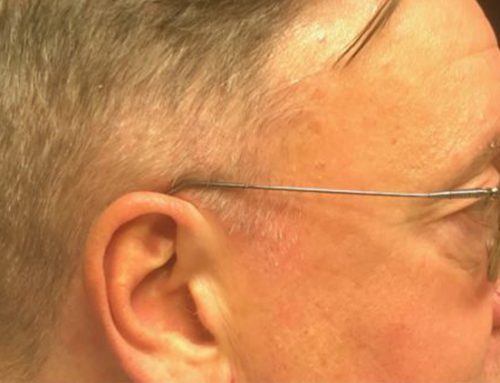When it comes to choosing a plastic surgeon, you want someone with the qualifications and skill in the operating room to get the job done–but you also want someone with good soft skills. These skills, like professional demeanor, trustworthiness and likability, can be hard to pin down. They can’t be framed and displayed on a wall, but they matter just the same.
The relationship you have with a plastic surgeon is particularly important because the way we look and feel about ourselves is so subjective. One person’s aquiline nose is another’s big schnoz. This subjectivity means that the doctor and patient need to be on the same page, and that requires good communication.
Though some are more communicative than others, physicians have been taught the importance of bedside manner since the time of Hippocrates:
The physician ought also to be confidential, very chaste, sober, not a winebibber, and […] Be solicitous in your approach to the patient, not with head thrown back (arrogantly) or hesitantly with lowered glance, but with head inclined slightly as the art demands. –Hippocratic Corpus
Science also backs up the importance of the doctor-patient relationship. A 2014 systematic review of the research showed that health outcomes improved when the doctor-patient relationship was a good one.
Despite all this, you may still find doctors you don’t “click” with. Sometimes it will be clear that you need to find another provider, but other times you may not be sure. Here are some indicators that you have found a plastic surgeon who will put your needs first:
Time
The surgeon spends the time you need answering your questions and addressing your concerns.
Professionalism
The surgeon and office staff are well organized and professional, and the office is clean and presentable.
Respect
The surgeon and staff show respect for your privacy and physical boundaries. Consultations should initially occur in the office with your clothes on. During the physical exam, you should be adequately draped for privacy.
Honesty
The surgeon is clear about the options available and risks involved with any procedures. They will also advise you when something is not in your best interest.
Of course, communicating with a plastic surgeon is a two-way street and there are many things you can do to make the most of your plastic surgery consultation: before, during and after your appointment.
Before your appointment
- Think it through: Spend some time thinking about what your goals and expectations are.
- Look at pictures: Check out before and after photos to get a realistic idea of outcomes.
- Research options: Do your homework on the procedure you are interested in. Know the options that may be available to you.
- Write it down: Make a list of questions to ask the doctor ahead of time. This will help you clarify what you want to know, and it will help you remember the things that are important to you.
- Organize your health history: Make a list of health conditions and medications you take. It is important that your surgeon get your whole health history to determine the best course of treatment.
During your appointment
- Ask questions: Be sure you understand the complications and risks of the procedure you are looking into. It is OK to ask the doctor to repeat information.
- Don’t be shy: This is no time to be embarrassed about the things that concern you. The more open you are, the more likely your surgeon will be able to help you reach your goals.
- Be honest: Omitting health or lifestyle information, like whether you smoke, can lead to complications and a less-than-optimal outcome.
After your appointment
- Follow up: Don’t be afraid to ask for a follow-up appointment, if you still have more questions or concerns.
- Shop around: Sometimes you may need to get several opinions before you decide on the best surgeon for you.
Taking an active role in your own care is the best way to get the outcome you want. Sometimes that means altering your expectations or considering a different approach, but it all starts with open lines of communication. Give us a call and schedule a consultation, we will be happy to answer any questions.





